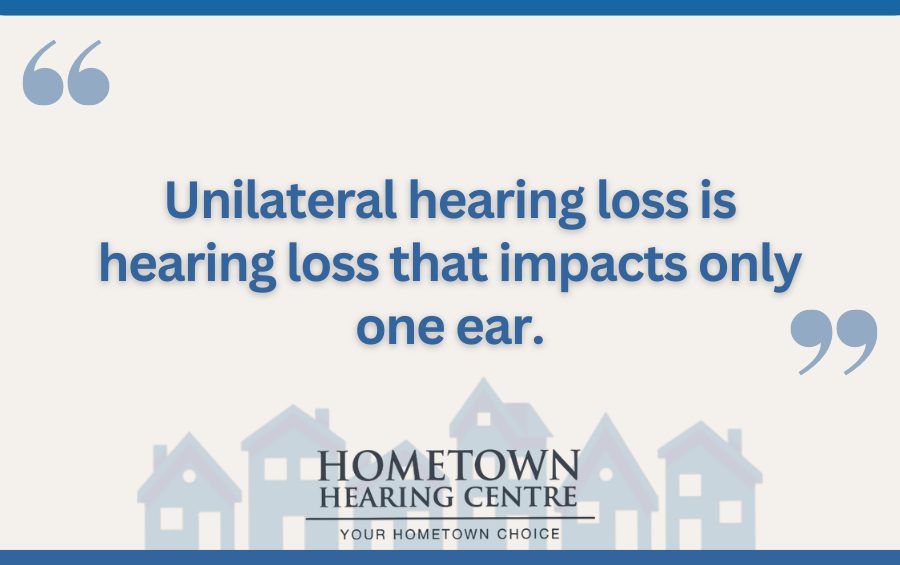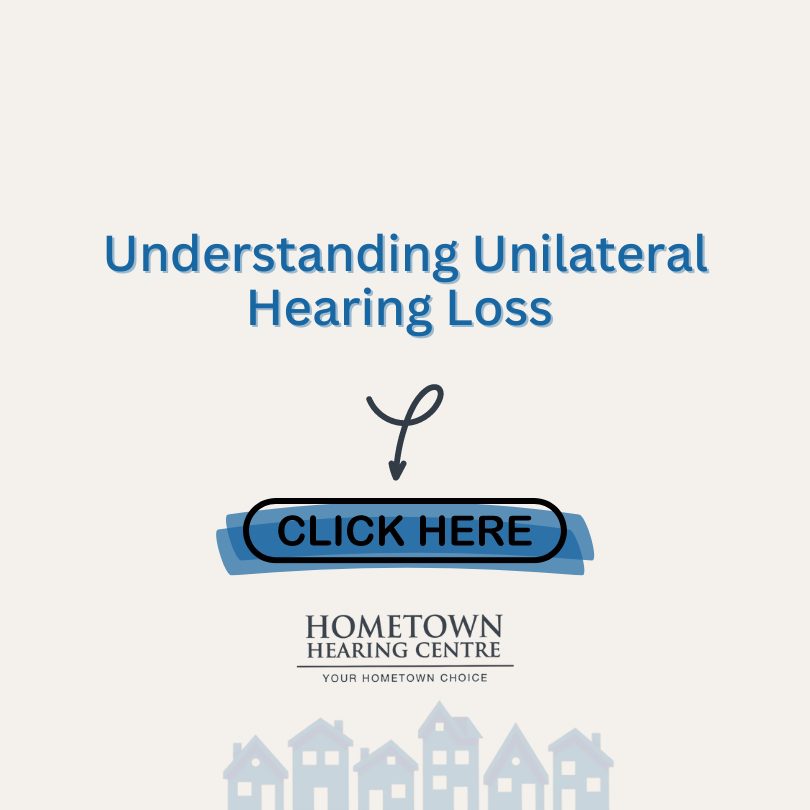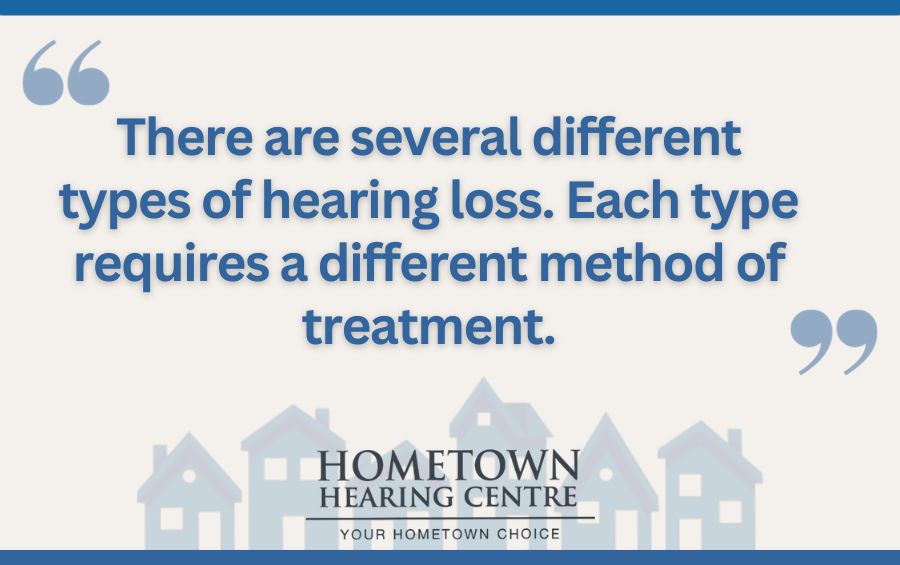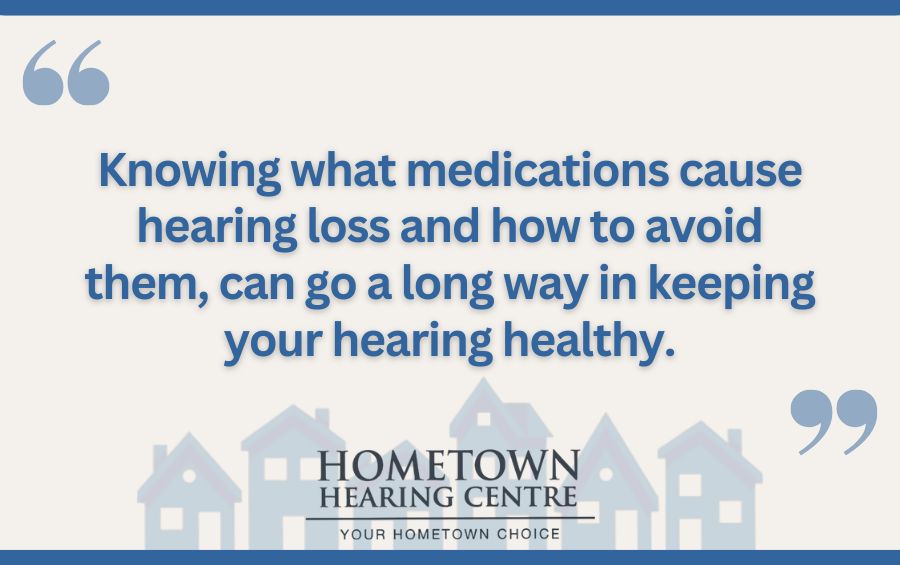Do you ever find yourself reminding friends and family to speak into your “good” ear? If the answer is “yes,” then know you’re not alone. Unilateral hearing loss, also known as single sided hearing loss, impacts a significant number of Canadian adults. Unilateral hearing loss is hearing loss that impacts only one ear.
If you have a unilateral hearing loss, your hearing may sound muffled in one ear. You might not be able to hear certain sounds as clearly as you can with your other ear.
Unilateral hearing loss can exist at birth or develop later in life. It can come on gradually or suddenly, depending on the cause. Always seek medical attention right away if you’re experiencing a sudden hearing loss.
At Hometown Hearing Centre, your hearing care is our biggest priority. Our experienced team of hearing care professionals is here to recommend the best treatment for your unique situation.
Types of Unilateral Hearing Loss
There are two types of unilateral hearing loss – sensorineural hearing loss and conductive hearing loss.
Sensorineural hearing loss occurs as a result of damage to the inner ear. It’s common when there are issues with the nerve pathways that send messages from your inner ear to your brain. Sensorineural hearing loss can be permanent.
Conductive hearing loss can bring symptoms like muffled hearing, a “full” sensation in the ear, dizziness and tenderness. It occurs when the movement of sound through the ear is blocked.
When unilateral hearing loss is so profound that there’s no hearing left, it’s referred to as unilateral deafness (SSD.)
Causes of Unilateral Hearing Loss
Unilateral hearing loss can have several different causes. Some common causes of unilateral hearing loss include:
- Genetics
- Injuries to the ear
- Head injuries or traumatic brain injuries (TBIs)
- Earwax buildup
- Swimmer’s ear
- Foreign object blockage
- Middle ear infection
- Eardrum problems
- Health conditions
- Loud noise exposure
Symptoms of Unilateral Hearing Loss
If you have a unilateral hearing loss, you may become disoriented in a crowd, since it’s much easier for your brain to filter out unnecessary sounds with two ears.
It might be tough for you to distinguish where a sound is coming from or how loud it is, since your brain processes sounds using signals from both ears.
The symptoms of unilateral hearing loss can be frustrating. They can interfere with your day-to-day life and make certain activities more difficult. The good news is that there are effective ways we can help you manage your unilateral hearing loss.
Treatment Options for Unilateral Hearing Loss
Temporary unilateral hearing loss can be treated with proper care, and your hearing will return to normal in time.
If your unilateral hearing loss is permanent, it will usually come on slowly. You may not even notice it at first.
Single-sided hearing loss can be treated with:
- Medications
- Hearing aids
- Remote microphones
- Cochlear implants
- Auditory brainstem implants
- Speech and language therapy
When Should You See a Hearing Care Professional?
If you’re experiencing unilateral hearing loss symptoms, you should contact your hearing care professional right away – especially if your symptoms are sudden.
With several convenient locations across Ontario, our team at Hometown Hearing Centre is here to help you.
Our trusted hearing clinicians and hearing instrument specialists will perform a comprehensive hearing assessment to diagnose the cause of your unilateral hearing loss symptoms.
We’ll recommend the best treatment plan for your individual case.
If you’re in Ontario and experiencing a hearing loss in one ear, schedule an appointment or request a callback today.





